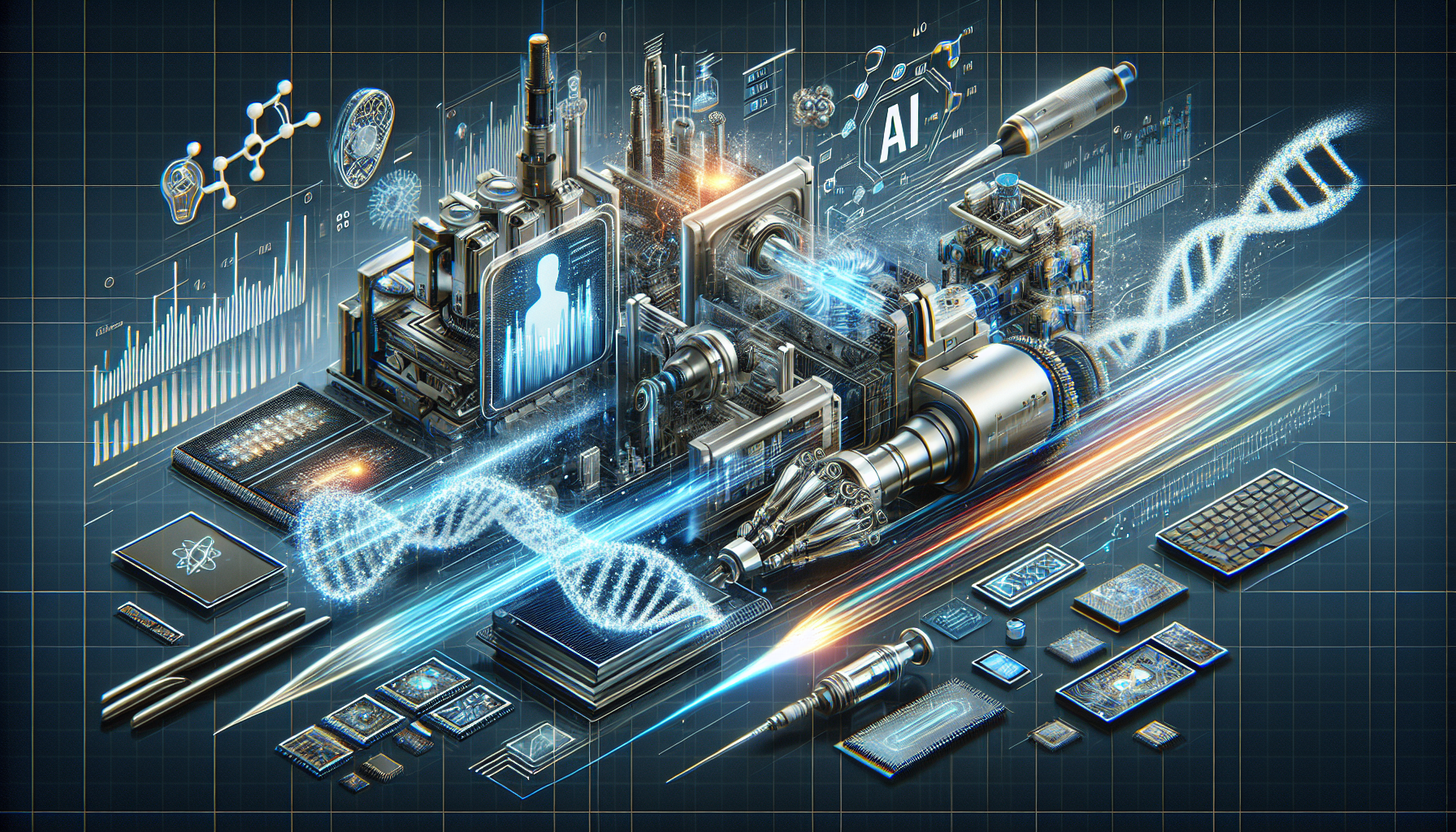Next-Gen AI Accelerators Drive Faster Scientific Discovery in 2025
The scientific community is witnessing a paradigm shift in research and development, thanks to the advent of next-generation AI accelerators. These cutting-edge technologies are revolutionizing the way scientists work, automating hypothesis generation, expediting simulations, and dramatically shortening research cycles across various fields. In this article, we'll delve into the key developments and innovations driving this transformation.
Specialized AI Hardware and Energy Efficiency
The growing complexity of AI models has led to the adoption of energy-efficient hardware, such as TPUs (Tensor Processing Units) and neuromorphic chips, in 2025. These accelerators enable rapid, large-scale computation for scientific workloads while minimizing energy consumption—a critical concern as AI's environmental footprint grows. Techniques like model pruning and quantization further reduce energy requirements, and major cloud providers are powering AI workloads with renewable energy to achieve carbon neutrality.
Agentic AI Platforms: Collaborative Partners for Scientists
Platforms like Microsoft Discovery integrate agentic AI—teams of specialized AI agents working collaboratively with scientists—to accelerate the entire research process. These platforms combine advanced knowledge reasoning, hypothesis formulation, simulation, and rapid iterative learning, often with graph-based knowledge engines for deep insight. For instance, Microsoft Discovery enabled the discovery of a novel coolant prototype in roughly 200 hours, a process that would have previously taken months or years.
AI Co-scientists and Multi-agent Systems
Systems such as Google's AI co-scientist (built on Gemini 2.0) function as collaborative partners for researchers. These multi-agent AI systems mirror the scientific method, synthesizing literature, generating novel hypotheses, and planning experiments—helping researchers navigate the explosion of data and transdisciplinary insights.
Generative AI for Simulation and Discovery
Next-gen generative models like DeepMind’s AlphaFold 3 and xAI are driving breakthroughs by simulating complex molecules for drug discovery, hypothesizing climate models, and optimizing engineering materials. This has reduced research and validation timeframes from years to months, revolutionizing R&D in pharmaceuticals, materials science, and even space exploration.
Synthetic Data and Privacy
Generative AI also produces synthetic datasets for training, allowing safe, privacy-preserving model development in sensitive domains like healthcare and finance. This expands AI's reach to industries previously limited by data constraints.
Automated Scientific Workflows
AI platforms such as those developed by FutureHouse deploy specialized AI agents for tasks including information retrieval, synthesis, chemical synthesis design, and data analysis. By automating these bottlenecks, scientists can focus on creativity and high-level reasoning, accelerating progress in fields that have faced declining productivity due to increasing complexity.
Essential AI Tools in 2025
A suite of advanced AI tools now underpins scientific progress:
- BenevolentAI and Cyclica for drug discovery and molecular modeling.
- AlphaFold-Multimer for predicting protein-protein interactions.
- Elicit for automated literature review and hypothesis refinement.
The Future of Scientific Discovery
In summary, next-gen AI accelerators in 2025 are not just faster chips—they are entire ecosystems combining specialized hardware, intelligent agent-based platforms, and generative models, all orchestrated to break through the traditional bottlenecks of scientific discovery while meeting new sustainability and ethical standards. As we continue to push the boundaries of AI-driven research, we can expect to see even more groundbreaking discoveries and innovations that transform our understanding of the world and improve human lives.
For more insights into the role of AI in scientific discovery, check out our article on AI-Powered Virtual Labs Revolutionize Drug Discovery and Disease Research.
Read Next
- AI Superintelligence Breakthroughs Reshape Global Tech
- AI Accelerates Sustainable Materials Discovery in Singapore July 2025 Update
- Automated Customer Service Examples with Case Studies
- AI and GDPR: GDPR Rules for Companies To Implement AI
- "xAI to Build World’s First Dedicated AI Power Plant for 1 Million GPUs"

